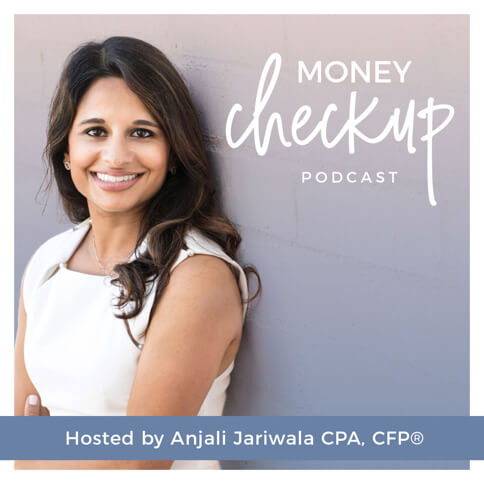The COVID-19 pandemic has upended almost every aspect of our lives, including, for many of us, our finances. Whether you’re furloughed, bracing for losses in your business, or facing an uptick in your expenses, reducing your spending may be essential right now.
To cut back on your bills in the short term, focus on your housing and your debt. Phone calls to your lenders could allow you to delay or skip many of your monthly payments. Just make sure to ask about how it’ll impact your credit.
If You Haven’t Yet, Apply For Unemployment
First: If you qualify and you haven’t done so yet, apply for unemployment. States administer unemployment benefits, so what you qualify for depends on where you live. However, the federal CARES Act funds $600 per week on top of whatever you collect from your state — even if you’re an independent contractor.
The CARES Act eliminated the one-week waiting period for unemployment, so you can receive benefits immediately, retroactive to the date you stopped working.
States are dealing with unprecedented numbers of applications, so you may have to try to file your application many times. You may also experience a long wait before you receive your first payment. Don’t let this stop you from applying, however — all of us have paid into unemployment insurance, and all of us can collect it.
Reducing Your Housing Costs
To cut back on your spending this spring, start with what is probably your family’s biggest expense: Housing.
If you rent your home, reach out to your landlord. Ask them about rent relief — full forgiveness of rent for one or several months. If that isn’t possible, they may offer rent deferment, which means you may not have to pay rent for several months, but you’ll have to make additional payments in the subsequent months to make up for what you missed. Even partial rent relief or deferment may be enough to help you navigate your short-term financial needs.
Keep in mind that landlords don’t want to find new tenants in this environment, when so many people are out of work and rents are falling in many places. Your landlord may be more willing to work with you than you expect.
Take note of your local and state regulations as well. In some cities and states, including California and New York, landlords are not permitted to evict tenants for nonpayment if the pandemic caused them to lose work.
If you pay a mortgage, reach out to your lender to see what they offer. Every lender is different, but some are offering forbearance on payments, some with no late penalties or interest.
If your mortgage lender offers forbearance, make sure you understand how it will impact your credit. The CARES Act is supposed to preclude people from taking a credit hit if they do not make their mortgage payments, but it isn’t yet clear whether forbearances will appear on credit reports or not. If they do appear on your credit report, you may struggle to refinance your home in the future. During this period, it may be a good idea to check your credit report more frequently than you normally do..
For additional relief, call your utility providers, including your phone and internet providers. Many are offering relief or deferment. AT&T, for instance, will waive late payment fees if you’re unable to pay your bill due to the pandemic. Some cell phone providers are waiving overages on data. Cities around the country have forbidden electricity, gas and water companies to turn off service for nonpayment.
Stopping Payments On Other Debt
The CARES Act provides six months of relief on federal student loan payments. Qualifying loans will earn no interest for six months. You can also defer payment for six months with no penalties. If you are pursuing public service loan forgiveness and choose to defer your payments, it will not impact the timeline for your loans to be forgiven.
Not all loans are eligible for this relief, however. Private loans and certain federal loans that were sold to private institutions, such as FFEL loans, do not receive the same treatment. If you’re not sure whether you qualify, call your loan servicer to find out. If you had a federal loan that was sold to a private institution, ask the loan servicer if you can consolidate to receive federal loan treatment.
If you have a car payment, some automakers and lenders are allowing borrowers to defer payments during the pandemic. Again, call your lender to find out what their policy is, including whether the loan will continue accruing interest.
Credit card providers, too, are allowing borrowers to defer payments with little or no penalties and no interest. Every credit card company’s offer is slightly different, however, so make sure to confirm that you are eligible before you skip a payment. Usually the credit card company will note that you were impacted by the pandemic so you can receive the favorable provisions.
In all of these cases, ask your lender how deferring payments will impact your credit score. Each loan and line of credit is different, and to be prudent, assume every lender has a slightly different policy.
Finally, keep detailed notes about when forbearance periods will end. It’s possible that some lenders will extend these benefits, but others may not. Make sure you start making automatic payments again before the forbearance period is over. If your lender doesn’t remind you that it’s time to start making payments again, your bank balance or your credit score could end up faring worse, not better.
If you don’t want to stop payments on your debt altogether but you want to spend more conservatively, talk to your lender about reducing your monthly payments. Making minimum payments might mean it takes you longer to pay off loans than you had hoped, but it could help protect your credit score.
Delaying Your Tax Payments
The deadline for filing and paying your 2019 taxes is now July 15, extended from April 15. If you owe 2019 taxes, you will not incur any penalties or interest during this period.
If you typically file an extended return, the October 15 deadline has not been extended.
Making Lasting Changes
If you’re looking for something to do to pass the time this week, go through your checking account or credit card statement line by line to see what other cuts you could make. If you’ve been meaning to cut the cord on cable or have subscriptions you no longer want, cancel them. You may not notice these savings day to day, but they’ll add up over time.
Beyond that, the pandemic has changed the way all of us live. Many of us are cooking at home more, driving less, and picking up new hobbies. Think about the new habits you’ve developed during the last two months. Maybe you won’t cook at home every night, but could you maintain two nights a week? Did you fall in love with maintaining your own garden? Could you continue working from home and watching the kids not every day, but one day per week?
We don’t yet know what lasting effects this pandemic will have on our day-to-day lives, but they could be significant. Most of these effects will be outside our control. But if there are any changes you want to make — for your financial well-being or just for your own well-being — this will be a great opportunity to do so.




